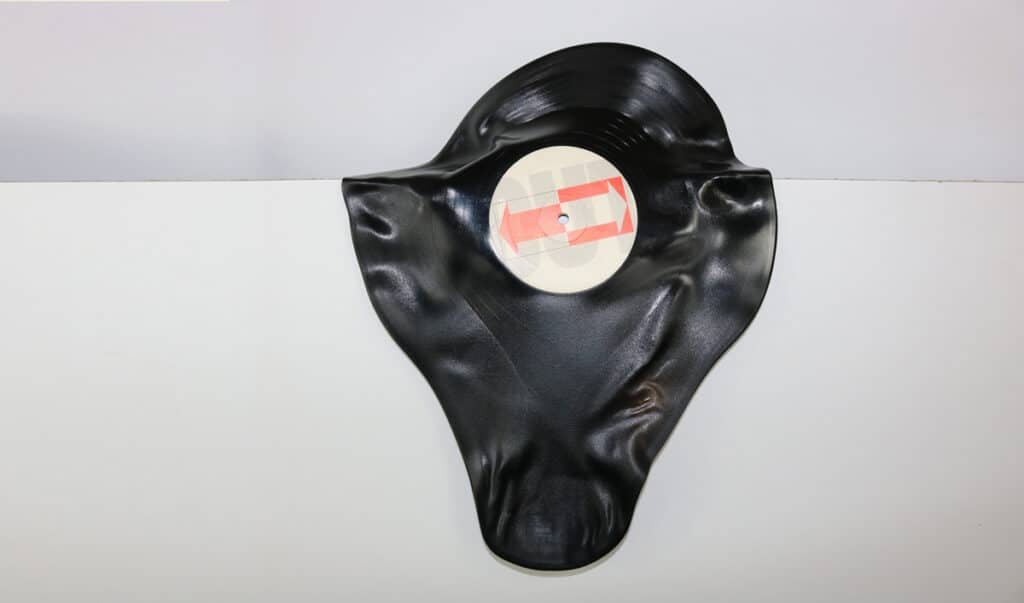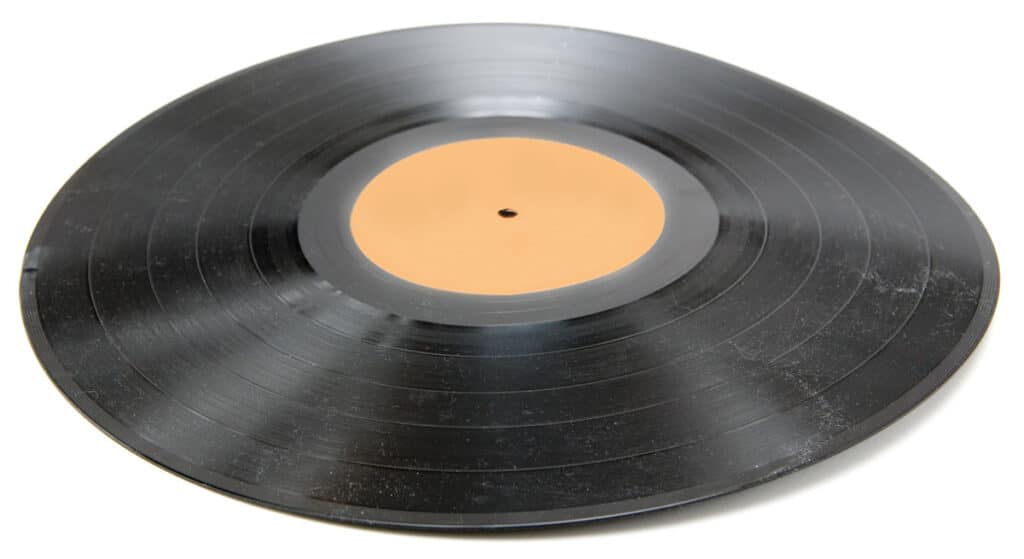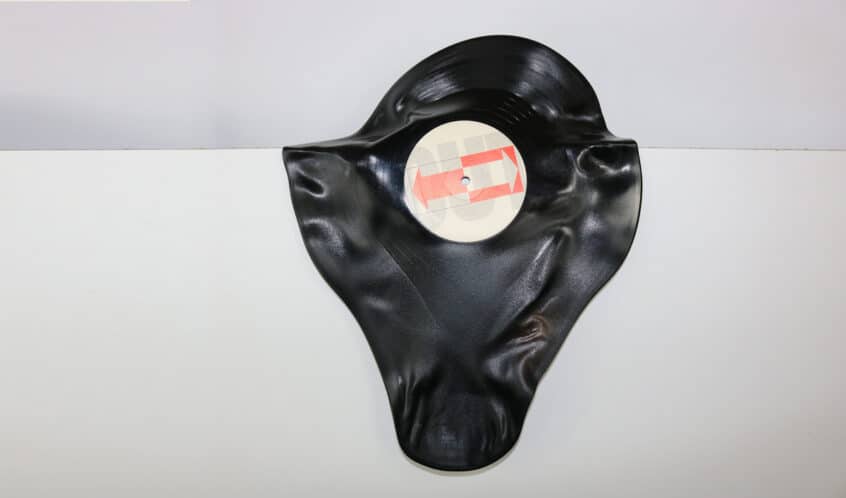In a world where digital music is the norm, vinyl records have enjoyed a resurgence as audiophiles, collectors, and casual listeners alike celebrate their tangible allure and distinct sound.
If you’re here reading this page, however, you’re likely wondering: How durable are your precious records? Can vinyl records melt? And, if so, at what temperature?
The short answer is yes. However, understanding the specifics provides context and offers tips on how to safeguard your cherished collection.

What are Vinyl Records Made Of?
Vinyl records are primarily made of polyvinyl chloride (PVC), a type of plastic. When subjected to excessive heat, PVC, like many other plastics, can soften, warp, and eventually melt.
Vinyl Record Melting Point
The specific temperature at which these changes occur varies depending on other factors, but typically, vinyl records start to warp at temperatures as low as 120°F (49°C) and can begin melting around 140°F (60°C).
Common Scenarios Where Vinyl Records Might Melt
- Direct Sunlight: Leaving a vinyl record exposed to direct sunlight, especially in a closed environment like a car, can cause it to warp or even melt in extreme conditions. This is a common problem when leaving records on the turntable after playing or on window shelves.
- Near Heat Sources: Keeping records close to heaters, radiators, or other direct heat sources can jeopardize their shape and sound quality.
- Incorrect Storage: Stacking records flat (as opposed to standing them upright) can generate heat through pressure, increasing the risk of warping.
- Hot Environments: Simply residing in a hot environment or an area without climate control can be harmful over time. (storing records in a loft or remote storage container is a common culprit here)
- Poor shipping conditions: If the record is exposed to head in transit, this can cause warping before the record even reaches your house. This has happened to on several occasions – particularly if left outside on a doorstep or porch.
Preventing Vinyl Records From Melting
- Proper Storage: Always store your records vertically and ensure they’re not tightly packed together. Use polyethylene plastic sleeves and keep away from cardboard, as it can hold moisture.
- Avoid Heat: Store your records in a cool, dry place, away from direct sunlight and heat sources.
- Climate Control: If you’re in an area with high temperatures, consider climate-controlled storage or ensure your living space remains cool.
- Transport with Care: Never leave vinyl records in a car, especially during warm months. If traveling, use insulated bags or boxes.
Learn more about storing records safely by checking out my complete guide, here.

Can a Melted or Warped Record Be Saved?
While slight warping might be corrected with specialized techniques, a severely warped or even melted record, unfortunately, cannot be restored to its original form.
For minor warps, a popular method among the vinyl community is to use two panes of glass and gentle heat to flatten the record, but this can be risky and is not always successful. Often, the heat source is as crude as putting the glass and record in an oven!
A safer option is to invest in a purpose-designed product, such as the Vinyl Flat which is a purpose-made record clamp and gentle heat pouch designed to essentially perform the same task under much more controlled conditions than a household oven.
Check it out below: It could just save that valuable first pressing you accidentally left on the turntable in the sun!
The Bottom Line
The allure of vinyl records is undeniable, with their rich sound and tactile appeal. However, understanding their vulnerabilities, especially to heat, is essential. Can vinyl records melt? Yes, they can. But with knowledge on correct vinyl storage and care, you can ensure your collection remains pristine for years to come.



